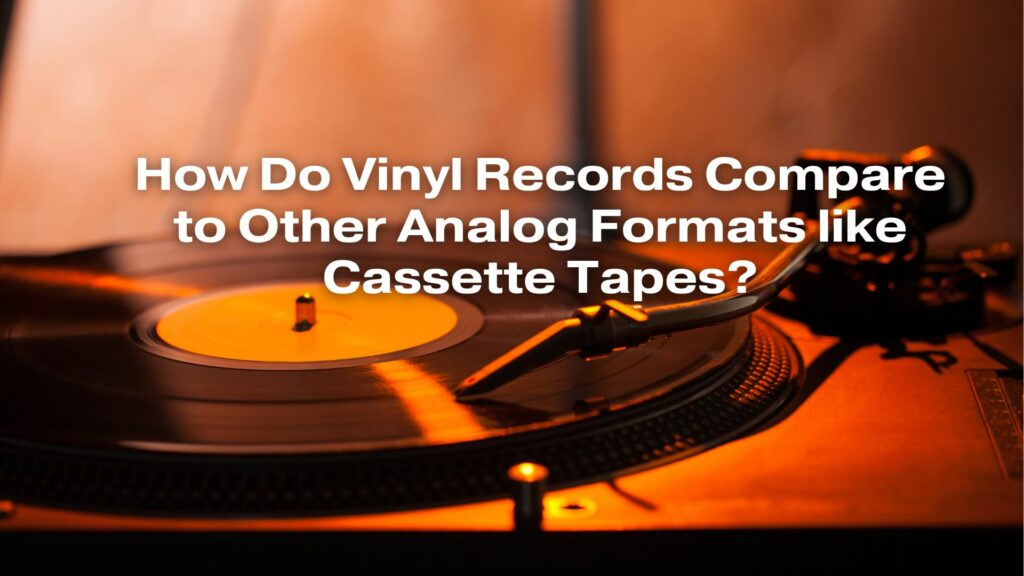In the ever-evolving landscape of music formats, analog mediums continue to hold a special place in the hearts of audiophiles, collectors, and nostalgia enthusiasts. Among these analog formats, vinyl records and cassette tapes stand out as iconic representations of a bygone era. Both offer unique characteristics and experiences that differentiate them from each other and from digital formats. Let’s compare vinyl records and cassette tapes in various aspects to understand how they stack up against each other:
Sound Quality:
- Vinyl Records: Vinyl records are renowned for their warm, rich, and detailed sound. The analog nature of vinyl provides a full dynamic range and a sense of depth that digital formats often struggle to replicate. Audiophiles appreciate the unique, analog sound that vinyl records produce.
- Cassette Tapes: Cassette tapes, while capable of delivering enjoyable music, typically offer lower fidelity compared to vinyl records. The sound can be subject to tape hiss, degradation over time, and reduced dynamic range.
Durability and Longevity:
- Vinyl Records: When properly cared for, vinyl records can last for decades. Their durability comes from the fact that they are physically pressed and not prone to wear from repeated playback. However, they can be easily scratched or damaged if mishandled.
- Cassette Tapes: Cassette tapes are less durable than vinyl records. They are susceptible to wear and tear, including tape stretching and warping, which can affect sound quality. Magnetic tape can also deteriorate over time.
Portability:
- Vinyl Records: Vinyl records are not known for portability. Their size and weight make them less suitable for on-the-go listening. They are typically enjoyed in a stationary setting.
- Cassette Tapes: Cassette tapes are compact and easily portable. This makes them ideal for use in portable cassette players, car stereos, and personal listening devices.
Collectibility:
- Vinyl Records: Vinyl records have a well-established collector’s market. Collectors often seek rare and limited editions, which can be quite valuable. The large album covers and artwork also contribute to their collectibility.
- Cassette Tapes: While there is a niche market for cassette tape collectors, it is generally smaller and less competitive than the vinyl market. Collectors of cassettes often look for rare or obscure releases.
Retro Appeal:
- Vinyl Records: Vinyl records have a strong retro appeal, and many people are drawn to the nostalgia associated with spinning records on turntables.
- Cassette Tapes: Cassette tapes also hold a sense of nostalgia, especially for those who grew up in the ’80s and ’90s. The format’s resurgence in recent years reflects its retro charm.
In conclusion, both vinyl records and cassette tapes offer unique listening experiences and have their distinct advantages and disadvantages. The choice between them largely depends on personal preferences, the type of music you enjoy, and the context in which you plan to listen. Vinyl records excel in sound quality and collector’s appeal, while cassette tapes are prized for their portability and retro nostalgia. Ultimately, the decision between these analog formats comes down to the kind of experience and charm you’re seeking in your music consumption.


